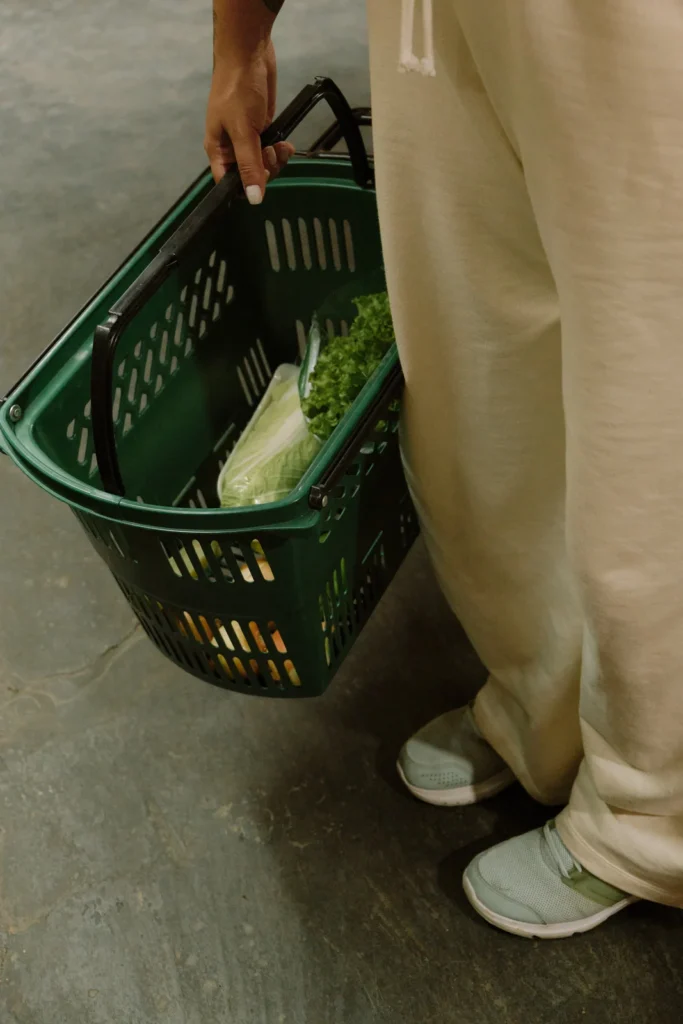It’s natural that we focus on what we eat when we focus on optimizing fertility. After all, eating takes up a huge part of our day-to-day needs, plus forms the nucleus around which much of our family and social interaction takes place. It’s also normal that in times of stress, we change our eating habits, either by reaching for comfort foods or restricting what we eat. So, it’s worthy of close consideration.
The challenge is that we are all very different. There is no ‘one size fits all’ model when it comes to nutrition, nor are there specific foods that are known to boost fertility specifically. The truth is far more complex, with fertility depending on a myriad of factors including age, medical history, and lifestyle. There are also some medical issues (such as blocked fallopian tubes for example), that simply can’t be remedied through diet alone.
That being said, the influence of diet and other related lifestyle choices on fertility should not be overlooked. Whether combined with fertility treatment or pursued on their own, changes in diet can have a significant and measurable effect on fertility. This was highlighted in the 2022 update to the American Society for reproductive medicine (ASRM)’s committee opinion on Optimizing natural fertility. The opinion is that healthy fertility habits include:
- Maintaining a healthy body weight
- Eating a diet that’s naturally high in nutrients, such as a Mediterranean-style diet.
- Getting more than the daily amount of folic acid (ingested as foliate), vitamin B12, and omega-3 fatty acids
More research needs to be done to determine specific and individual recommendations, so it’s important to talk to a doctor or qualified nutritionist for guidance as to what extent these guidelines may be appropriate. But getting some goodness through food and stocking up on ingredients rich in specific nutrients is definitely a safe place to start.
Here are some shopping list staples that can boost your chances of fertility success.
Folic Acid / Folate:
Folate is an essential B vitamin that helps with cell metabolism and the formation of new cells and is highly recommended for those preparing for pregnancy. Adequate amounts help to counteract the effects of stress on the body, which, in turn, helps fertility. Folate is also super important for the healthy development of a baby in the early weeks of pregnancy.
Folate shopping list:
- Dark-green leafy vegetables (kale, broccoli, spinach)
- Chickpeas, lentils, black-eyed peas and other legumes
- Fortified cereals or bread
- Asparagus
- Brussels sprouts
- Beetroot
- Citrus fruits
Vitamin B12:
B12 plays a critical role in maintaining healthy reproduction by improving the function of reproductive organs, reducing OS, pro-inflammatory cytokines, and circulating homocysteine levels.
Vitamin B12 shopping list:
- Low-mercury fish (such as salmon, cod, or light canned tuna)
- Lean beef, pork and lamb (in moderation)
- Eggs
- Clams
- Yogurt
- Fortified nutritional yeast
Omega-3 fatty acids:
These health-boosting fatty acids help improve the quality of eggs and delay their aging. They’re most commonly found in oily fish such as mackerel, sardines, salmon, tuna, and herring, as well as in flaxseed, seaweed, chia seeds, hemp seeds and walnuts.
As a rule of thumb, fish is one of the best fertility foods for women overall, and should be enjoyed in moderation. The NHS advises that women trying to get pregnant should not have more than two poly portions of fish a week. They should also avoid high-mercury fish such as bluefin tuna, shark, and swordfish.
Omega-3 shopping list:
- Low-mercury fish (especially salmon)
- Flax, chia and other seeds
- Plant oils (such as olive oil, flaxseed oil, and avocado or coconut oil)
Vitamin D:
This ‘sunshine’ vitamin helps boost the immune system, regulate hormones and has anti-inflammatory properties, all of which are thought to help with ovulatory dysfunction, hormonal imbalances, insulin resistance, and, thus, fertility.
Vitamin D shopping list:
- Trout
- Salmon
- Mushrooms (exposed to UV-B radiation post-harvest/post-drying)
- Sardines
- Egg yolks
- Chicken breast
- Vitamin-D fortified foods
- Some dairy and plant-based milk
- Breakfast cereals
Plant-based protein:
Increased vegetable protein intake has been associated with improved fertility in women, whereas a high animal protein intake is linked to decreased fertility. Although it is still unclear exactly how protein affects ovulation, it is thought to play an essential role in reducing hyperinsulinemia (excessive insulin levels).
Plant-based proteins shopping list:
- Vegetable protein is primarily found in:
- Beans and legumes
- Ancient grains like quinoa or amaranth
- Nuts and seeds
- Broccoli
- Chickpeas
- Edamame
- Lentils
- Nut butter
- Nuts and seeds
- Oats
Antioxidants:
An antioxidant is a compound that inhibits the production of free radicals and oxidation. They act as ‘bodyguards’ for the cells, protecting the body’s tissues from the damage of oxidative stress. They can include vitamins C and E, nutrients, (L-carnitine and Zinc), and some hormones (Melatonin), else they can come from a healthy diet.
Antioxidant shopping list:
- Berries
- Apples
- Herbs
- Leafy greens and lettuce
- Avocados
- Artichoke
- Sweet potato
- Spices
- Nuts
- Vegetables
- Dark chocolate
Because nutrition is highly individual and not one person is bio-identical we always recommend seeking out a personalized nutrition consultation to get the right advice for you, tailored to your dietary requirements and lifestyle.

